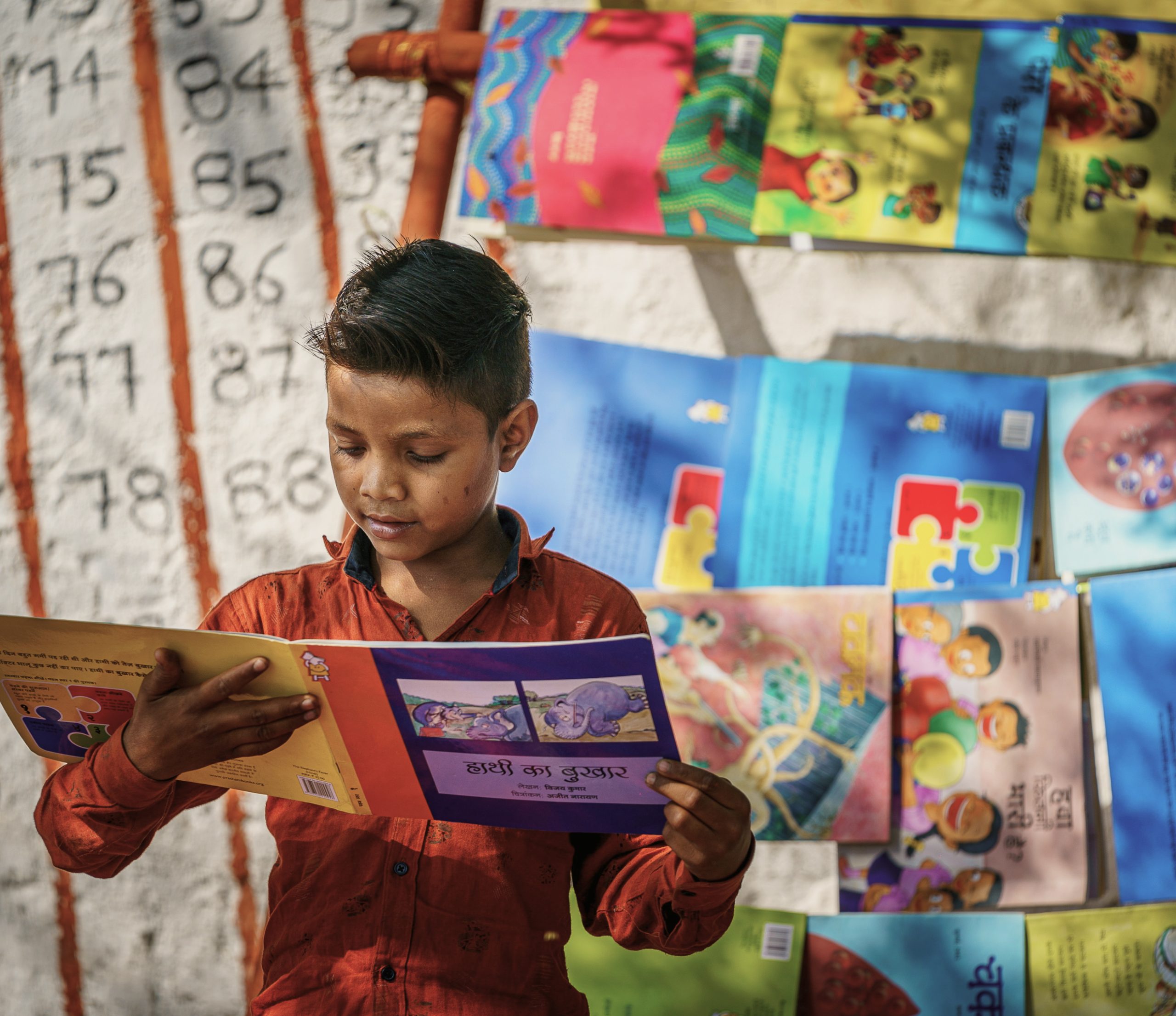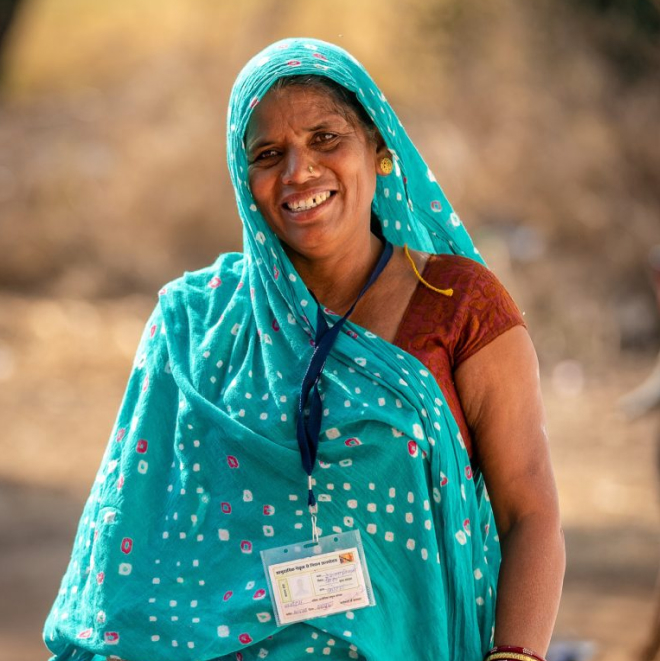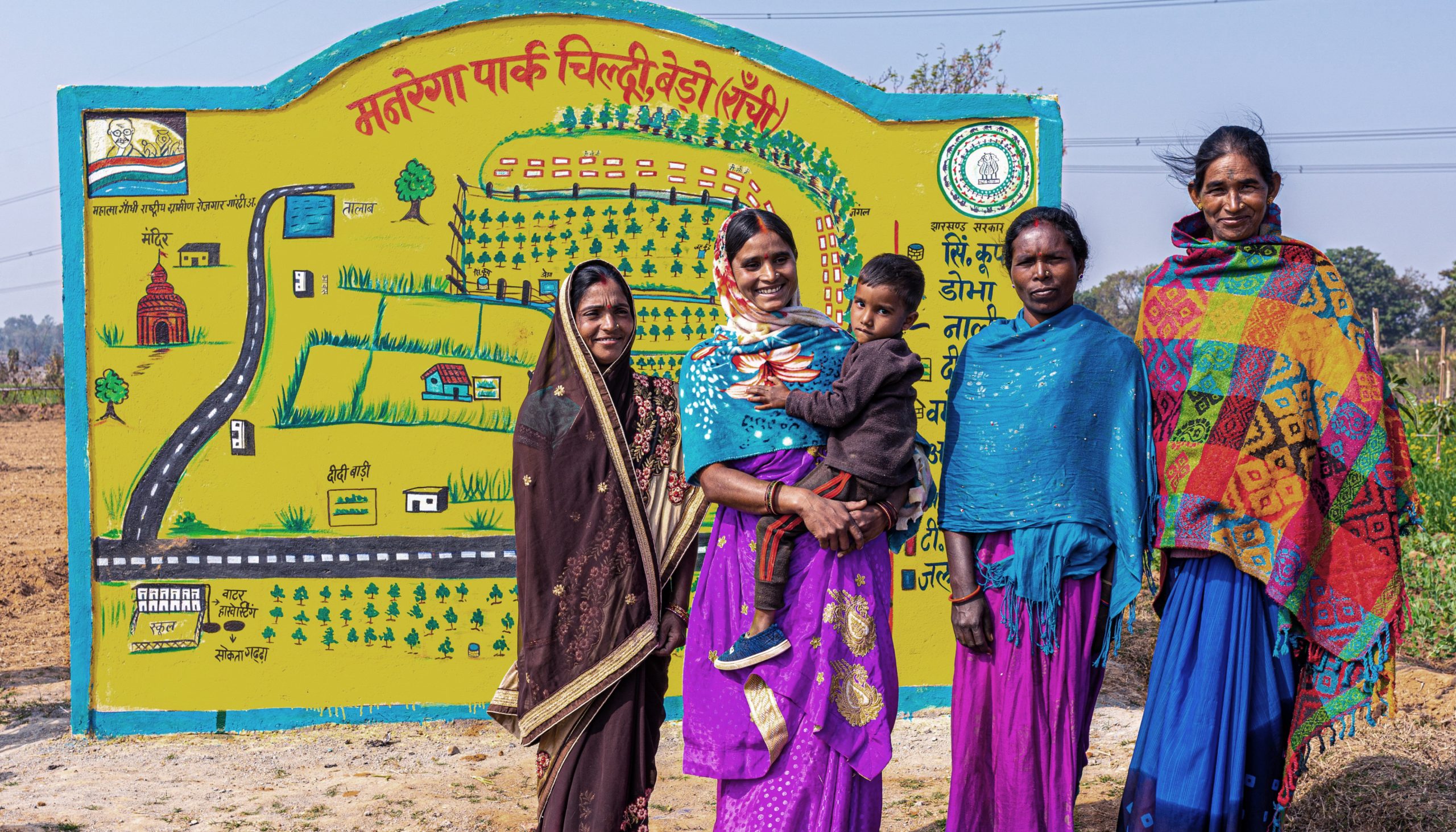Illiteracy remains at an all time high in rural India. While there is the rare breakthrough-child who manages to stumble out of the shackles of generational illiteracy, most remain illiterate. We are working towards a future where every rural child is equipped with the tools, opportunities and skills needed to thrive in the 21st century.

There are 250 million students in India and 74% are enrolled in rural schools.
The drop in learning achievements was acknowledged as a universal learning crisis by the World Bank Group in 2022. In rural areas the quality of education is insufficient to provide necessary skills for future employment and mobility.

Ensure all rural children transition to Class 8 or beyond
Ensure all rural children develop critical 21st century skills relevant in a dynamic world
Focus on quality education, nurture creativity and encourage an entrepreneurial mindset


Along with our education partners, we’ve crafted programs that bridge the gap between rural and urban communities, fostering a generation of confident, employable and entrepreneurial individuals spread across a set of Educationally Backward Blocks (EBB).


We’ve been implementing education programs in the poorest parts of India since 2017


We design, develop and demonstrate innovative solutions


We generate evidence for solving complex problems in rural education


We work extensively in EBBs through a ‘360-degree systems-view’ approach


We build an ecosystem of learning across school, home and learning centres

Vashni is a part of a self-help group in her village in Madhya Pradesh. As part of a government program to encourage livelihoods, TRI was able to help her get black hens, which are of high value in the poultry industry. Demand for the local black breed, Kadaknath, has surged in recent years as it’s valued for its low-fat, high protein content as well as its medicinal properties.
Vashni Dalia Bamaniya, Sutrati village

Reach us at
TRI Square,
43 Community Centre Zamrudpur,
Kailash Colony Extension,
Behind Hanuman Mandir,
New Delhi,
Delhi 110048
+91 11 43068096